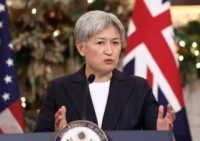In a significant administrative overhaul, President Bola Tinubu has announced the appointment of chairpersons for 42 federal organizations, marking a strategic move aimed at enhancing governance and operational efficiency across various sectors in Nigeria. This series of appointments was communicated through a statement by the President’s Special Adviser on Information and Strategy, Bayo Onanuga, with all roles taking immediate effect.
Key Appointments:
Hon. Hillard Eta will take the helm at the National Youth Service Corps (NYSC), focusing on youth development and national service.
Prof. Bolaji Akinyemi is appointed as Chairman of the Nigerian Institute of International Affairs (NIIA), where he is expected to bring his extensive knowledge in international relations to bear on Nigeria’s foreign policy.
H. E. Abdullahi Umar Ganduje, former Governor of Kano State, will lead the Federal Airports Authority of Nigeria (FAAN), aiming to improve the country’s aviation infrastructure.
Other notable appointments include:
Sen. Magnus Abe for the National Agency for Great Green Wall, focusing on environmental conservation.
Sen. Surajudeen Bashiru Ajibola for the National Sugar Development Council, which will play a crucial role in agricultural development.
Raji Kazeem Kolawole as Director-General of the National Board for Technology Incubation (NBTI), emphasizing innovation and technology transfer.
In addition to these, President Tinubu has appointed Dr. Kayode Isiak Opeifa as the new Managing Director of the Nigerian Railway Corporation, signaling a push towards improving the nation’s transport infrastructure. Major Gen. Jubril Abdulmalik (Rtd) has been named Secretary to the Civil Defence, Immigration, and Prisons Services Board, aiming to streamline operations and security measures within these services.
Strategic Direction:
President Tinubu has clearly outlined the non-executive nature of these roles, instructing the appointees to focus on strategic oversight rather than daily administrative duties. This approach is designed to ensure that the boards operate with a clear vision towards organizational goals, promoting accountability and preventing undue interference in management. The President’s directive emphasizes the importance of strategic leadership in driving the effectiveness and efficiency of their respective organizations, aligning with his broader vision for national development through competent governance.
Implications for Governance:
This wave of appointments reflects a deliberate attempt by President Tinubu to inject new energy and expertise into federal agencies that are pivotal to Nigeria’s growth and stability. By choosing individuals with diverse backgrounds—ranging from politics and academia to military service—it appears there is an intent to harness varied perspectives for better decision-making.
Moreover, these appointments could signal a shift towards policy implementation with a focus on results. For instance, the appointment of former governors and senators suggests a move to leverage their experience in governance to enhance the operational frameworks of these bodies. The inclusion of professionals like Prof. Bolaji Akinyemi indicates a strategy to elevate Nigeria’s standing in international discourse and policy-making.
Challenges and Expectations:
While these appointments are seen as a step towards more effective governance, challenges remain. The appointees will need to navigate existing bureaucratic inertia, manage expectations from various stakeholders, and address systemic inefficiencies. There’s a high expectation for these leaders to show tangible improvements, particularly in sectors like healthcare, where several Federal Medical Centres have new chairpersons, and in transportation, with the new head of the Nigerian Railway Corporation.
Conclusion:
President Tinubu’s recent appointments are part of a broader governance strategy aimed at revitalizing federal institutions. As these new leaders settle into their roles, the nation watches with anticipation for how these changes will translate into better services, enhanced policy execution, and ultimately, an improved quality of life for Nigerians. The success of these appointments will largely depend on their ability to work collaboratively, innovate, and truly steer their organizations towards the broader national developmental agenda.












Im not convinced, why appoint new leaders for 42 agencies all at once? Seems like a recipe for chaos!
Wow, did Tinubu really appoint new leaders for 42 federal agencies? Thats a lot of changes, wonder how itll impact things.
President Tinubus choices for agency leadership are questionable. Will this bring positive change or just more of the same?
Wow, do you think this new leadership will bring positive change or just maintain the status quo? Excited to see the outcome!
Im not convinced this new leadership will bring real change. Lets see if they actually make a difference!
Is President Tinubu truly appointing competent leaders or just rewarding political allies? Lets discuss the real impact.
I wonder if these new appointees are qualified or just political favors. Hope they actually bring positive change!
Interesting move by Tinubu, but will these new leaders bring positive change or just more of the same?